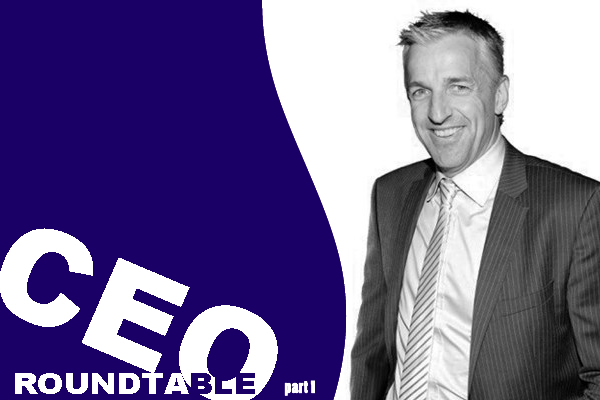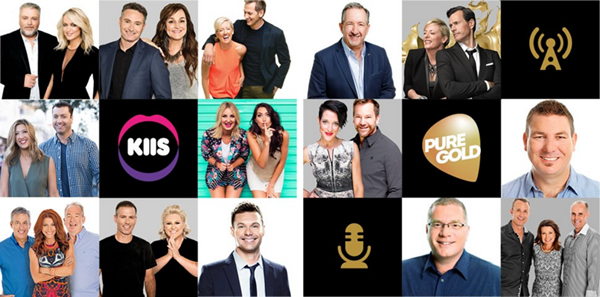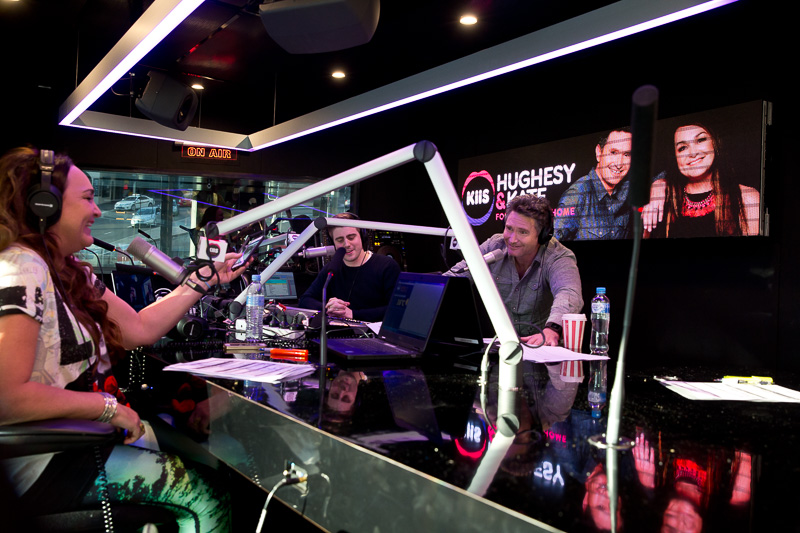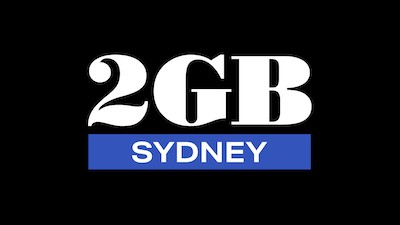CEO Round Table – Tony Kendall

Tony Kendall took over as Chief Executive Officer of the Australian Radio Network in September last year. With just on six months in the chair, we caught up with Tony for our CEO Round Table.
In part 1 we talk about his media career, what made him set his sights on a CEO position with ARN and how has his transition from print to radio been? We discuss revenue and the mix of agency versus local for ARN, how does he think advertising will shift in the future? And we talk On-Air talent, with the first full year of all three networks going head to head in drive can that amount of investment continue?
Blair: Where did your media journey start?
Tony: I guess about 26 years ago now, as the Melbourne Sales Representative for the Sunday Telegraph Newspaper looking after the Melbourne based clients and agencies selling on to the Sunday Telegraph in NSW. It seems a long time ago.
Blair: And where did you jump to then from there?
Tony: I stayed at news for the better part of 23 years and that saw me get into national sales roles, and then I eventually moved to Sydney as the National Sales Director, and then to New York as the Senior Vice President of Sales for the New York Post for a year, then back to Australia and CEO of the Magazine Division for a year and then heading up all of sales looking after some 2.2 billion dollars revenue at News some years ago when their numbers were significantly higher than they are today.
Blair: The old print business has shifted just a little in recent years hey.
Tony: Just a touch.
Blair: So the jump to ARN as CEO, what encouraged you to join and take that role on?
Tony: It was a fantastic opportunity from my personal point of view having done newspapers, magazines and digital, having another media experience in my career was something I was very keen to do.
Certainly also moving into a media that I think has had obviously a wonderful couple of years but also still has great potential, and particularly great potential to expand beyond just radio. So those were the big draw cards and obviously when the role came up I was delighted to be able to win the job.
Blair: Transition from obviously a print media background to radio, how has that been?
Tony: I’ve been asked that quite a bit actually, but you know some of the core principles are the same in terms of most of the biggest advertisers on radio and certainly agencies we did business with are exactly the same so all of the relationships I’ve had with clients and agencies over the years transitioned quite nicely.
You know, again I think some of the core principles of any media around making sure you’ve got the right talent whether that’s an editor or on-air talent. The right talent delivers the right audience and the right audience then you can commercialize, so some of those core learnings are pretty similar across both markets. Sure there’s a lot of radio jargon and the like that I’ve got up to speed with but I think just about every media business is defined by talent, audience and people and that’s no different.
Blair: What is the biggest lesson you’ve learned so far in your media career?
Tony: I think it’s pretty much just that. You know this is a people business and you know if you can, and I have learnt this very much at news and certainly here that the investment you make in content is the first and foremost thing, so invest in the right content. And it’s about understanding what people want and delivering that content to the broadest possible audience. And then once you’ve done that, having smart people around the business who can commercialize that audience.

Blair: We’ve seen the evolution obviously of the KIIS Network in particular, and the Pure Gold Network as well. How important is a single national brand for advertisers these days?
Tony: This is an easy one, I think key agencies particularly are so busy, clients are demanding more, and more and more of their agencies in terms of the plethora of different media they have to consider to get a media campaign away.
So ease of doing business in itself a clear unique selling preposition so clients and agencies want to know that they can buy a single brand around the country, get a pretty consistent delivery of what that audience looks like and what those ratings are going to deliver. And that ease of doing business is probably fundamentally the most important thing behind national brands.
Blair: Where do you see the trend of advertising spending dollars going in the years to come?
Tony: That’s a bit of a crystal ball question isn’t it, I think we will see a flattening out of the digital growth that we’ve had to date, particularly in digital display. I think some of that digital display money is going to begin to migrate more into social channels. I think free to air television will see some of its share lost again into probably social channels. I think outdoor and radio future looks pretty strong in terms of continued growth in those two medias because they deliver a consistent audience. And I think you’ll see prints decline and start to slow based on, you know I think enough has been taken out of that medium to suggest that the way that the money that is spent there is probably about right.
Blair: You talked about agencies dealing with a single brand, how does the mix of local revenue versus agency pan out for ARN overall?
Tony: Our direct revenue is probably in the low 30’s as a percentage of our total revenue. It’s still a vitally important. You know if your revenues aren’t where you need them to be in a given month or a given week; you can turn the dial up on the direct team and get a result pretty quickly. So that mix, sort of in the low thirties is about right for us at the moment.
Blair: There’s talk about the disruption in the media space, how important is talent on radio given the countless choices today of alternates – there is a heap of music only choice. What’s your position with talent?
Tony: I think it’s less about talent and more about content to be honest. I think listening to music on a streaming device is a fantastic way to listen to music, but the fact of the matter is people want to listen to radio for a variety of things and music’s one small piece of that. So whether it’s local traffic, local weather, local sport, local news, and then there is the relationship they have with their talent, so yeah talent’s part of it but I think that’s the main reason we haven’t seen a drop in particularly breakfast and drive in terms of audience loss because it’s not why people turn the radio on.
I mean as I said music’s a part of it but just as big a part’s the local content, part of it’s the advertising and certainly a big part of it is people want to have a relationship with someone at the other end of the radio line.

Blair: A fair chunk of revenue comes out of breakfast as we know, this year will be the first year that all of the networks have, you know some have poured big dollars obviously into securing talent. Do you think all three major networks can continue with expensive talent driven drive shows in the years tocome?
Tony: I do on the basis that I think, you know Drive’s probably been undersold and there’s no question that there are just as many people going home in their car as there was getting to work in the morning, and certainly Breakfast has always been seen as a better time for advertising messages to hit the airwaves but I think we’re seeing more and more from the research that we’re doing that Drive plays a key role in how people really feel on their way home and gives them time to re-energize before they start their home life after a day at work I think, you know it gets back to the original point, to if you’ve got great talent you’ll get great audience and you’ll be able to commercialize that. So I don’t see anyone pulling back on investment in Drive.
In part two of CEO Roundtable with ARN’s Tony Kendall, we talk about The Thinker Girls and their approach at night. ARN have made aggressive moves with iHeartradio but what are their plans with their digital strategy overall? What’s Tony’s thoughts on the Media Law Reforms and we talk KIIS Melbourne and what are his ambitions are for the market with ARN.


